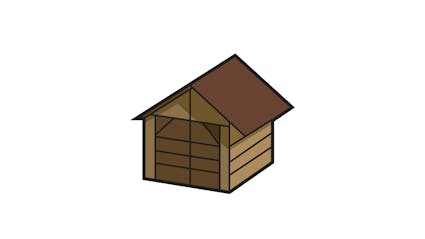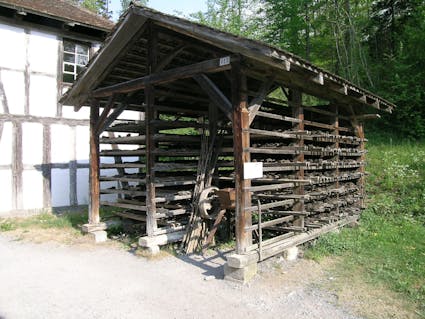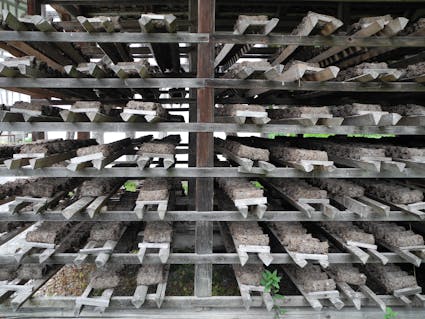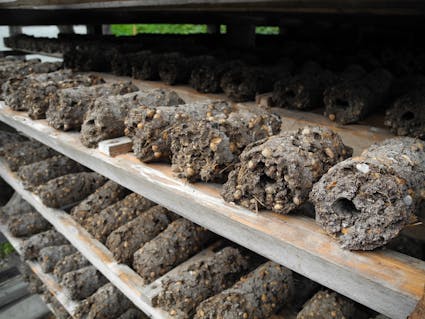613 – Trester Shed
After pressing grapes or cherries or other fruits, the skins, seeds, stems are left over. The leftovers, called Trester, were dried and burnt in the oven in winter.

Trester as Fuel
Trester is cake resulting from pressing grapes and is dried for peatlike fuel. The trester shed has an open post skeleton. It is reinforced by bracing at the corners. Light spars carry a simple tiled roof. From ground to roof the long sides are covered with slats spaced 20 centimetres apart (eight inches). Several dozen mobile lath shelves rest on the slats for carrying great amounts of conical cakes in military rank and file.

Waste?
After pressing grapes or cherries or other fruits, the skins, seeds, stems and whatever else end up in the harvest basket are left over. Once the juice has been pressed out of the fruit and drained off, these remnants lie on the bottom of the press.

2700 Energy Bars
The trester cake was not thrown out – waste not, want not. Small cones called “Zigerli” were formed in moulds. The trester “Zigerli” air-dry on these racks. In winter the trester “Zigerli” fire the heating stove and warmth wafts through the parlour with an aroma of fermented fruit. The racks of the Männedorf trester shed accomodate 2700 “Zigerli”.

Ballenberg
Swiss Open-Air Museum
Museumsstrasse 100
CH-3858 Hofstetten bei Brienz
Opening hours Administration
3 November 2025 to 8 April 2026
From Monday to Friday
8.30 am to 11.30 am
1.30 pm to 4.30 pm
Opening hours
9 April to 1 November 2026
10 am to 5 pm daily